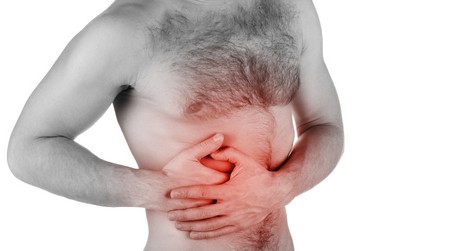The process of food digestion begins in the stomach and is completed in the duodenum and small intestine. Nutrients are absorbed through the intestinal wall into the bloodstream. Water and undigested remains pass into the large intestine, where most of the water is reabsorbed. The remaining wastes, known as faeces, are expelled through the anal sphincter.
Normal stools are brown in colour and semi-solid in consistency. Any deviation from the norm should be noted and a specimen saved for the doctor to see.
Saving a specimen
If possible the patient should not pass urine at the same time as faeces when a specimen is to be collected. With men this is simple as urine is normally passed into a urinal. It is generally necessary to ask women to pass urine first, before emptying and washing the bedpan and bringing it back again.
Wear disposable plastic gloves if available. Using a spatula, scoop some faeces into a waxed carton or screw-top jar. Label the container with the patient’s full name and address, the date and time of collection, and the nature of the specimen. Wrap the gloves and spatula in newspaper before burning or putting in the dustbin. Empty and clean the bedpan.
Diarrhoea
When a patient passes stools at frequent intervals he is said to have diarrhoea. If diarrhoea persists, the patient suffers from loss of fluid, known as dehydration, and may become very ill. Diarrhoea must always be reported to the doctor without delay. Diarrhoea is particularly serious in a baby or young child as dehydration occurs very rapidly and the baby can die in a matter of hours.
Constipation in the healthy person
In an otherwise healthy person constipation may be the result of not drinking enough fluid, not eating enough fibre or not allowing enough time for a bowel action. Fibre, which stimulates the bowel, is found ‘n fresh fruit and vegetables, in cereals especially unprocessed bran or porridge) and in wholemeal bread.
Correction of diet and habits will often relieve constipation. Medicines known as aperients are extensively advertised and widely used to speed up normal bowel movement and so cause an evacuation.
They have no effect on the cause of constipation, however, and therefore the condition persists.
Constipation in the patient
When people are ill they often become constipated. This may be the result of restricted diet, of increased fluid loss from sweating, or simply of unaccustomed inactivity. The patient may also be reluctant to drink in an attempt to avoid bedpans.
You should assess the patient’s condition and respond accordingly. Encourage him to drink more, unless for any reason fluids are restricted. Add water, fruit juice and fibre to the diet. Give him a bedpan or help him to the commode at a time when he would normally have a bowel movement. Above all, be sensitive to his feelings and his dignity: ensure his privacy and, if possible, leave him undisturbed.
If nothing else works the doctor may order a suppository or an enema.
